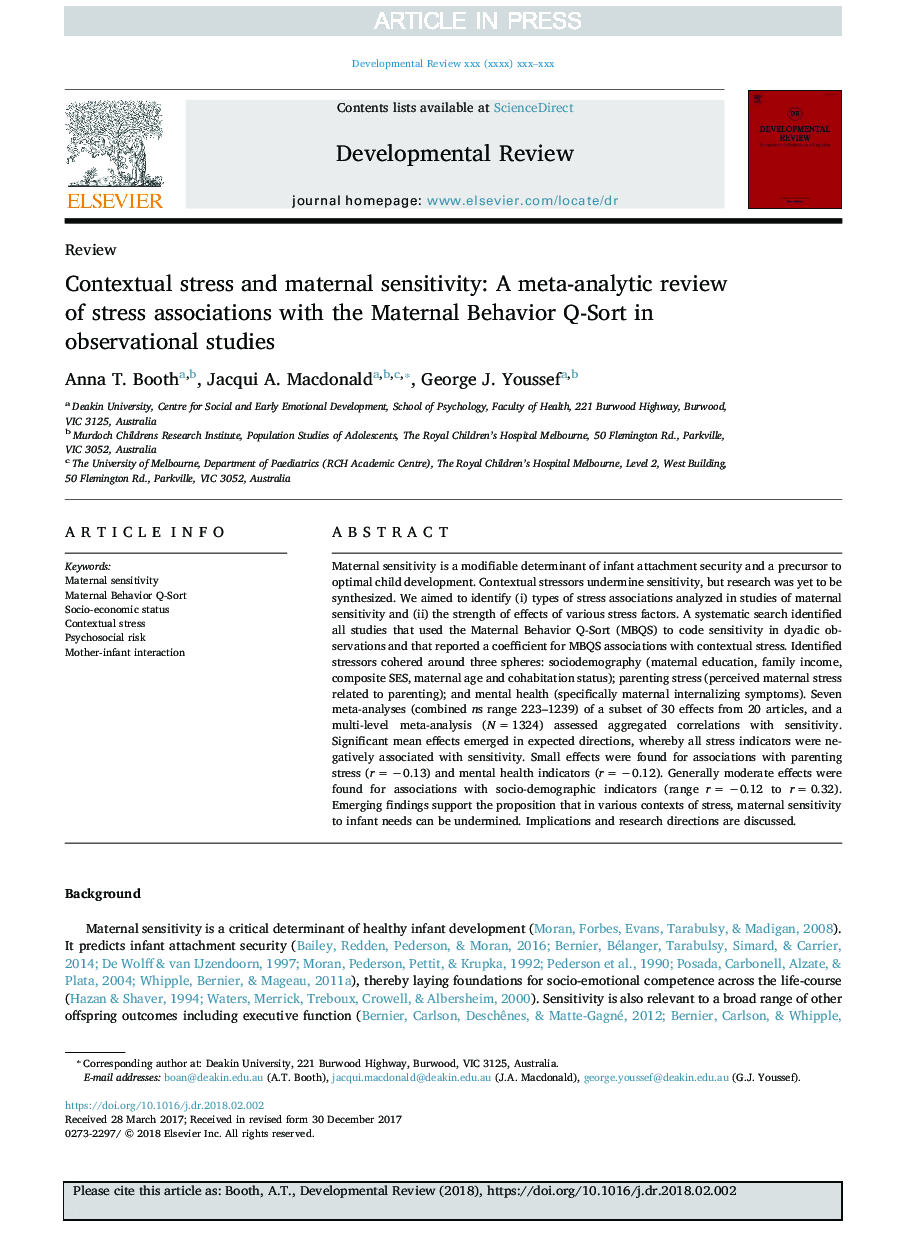| Article ID | Journal | Published Year | Pages | File Type |
|---|---|---|---|---|
| 6840375 | Developmental Review | 2018 | 33 Pages |
Abstract
Maternal sensitivity is a modifiable determinant of infant attachment security and a precursor to optimal child development. Contextual stressors undermine sensitivity, but research was yet to be synthesized. We aimed to identify (i) types of stress associations analyzed in studies of maternal sensitivity and (ii) the strength of effects of various stress factors. A systematic search identified all studies that used the Maternal Behavior Q-Sort (MBQS) to code sensitivity in dyadic observations and that reported a coefficient for MBQS associations with contextual stress. Identified stressors cohered around three spheres: sociodemography (maternal education, family income, composite SES, maternal age and cohabitation status); parenting stress (perceived maternal stress related to parenting); and mental health (specifically maternal internalizing symptoms). Seven meta-analyses (combined ns range 223-1239) of a subset of 30 effects from 20 articles, and a multi-level meta-analysis (Nâ¯=â¯1324) assessed aggregated correlations with sensitivity. Significant mean effects emerged in expected directions, whereby all stress indicators were negatively associated with sensitivity. Small effects were found for associations with parenting stress (râ¯=â¯â0.13) and mental health indicators (râ¯=â¯â0.12). Generally moderate effects were found for associations with socio-demographic indicators (range râ¯=â¯â0.12 to râ¯=â¯0.32). Emerging findings support the proposition that in various contexts of stress, maternal sensitivity to infant needs can be undermined. Implications and research directions are discussed.
Related Topics
Social Sciences and Humanities
Psychology
Developmental and Educational Psychology
Authors
Anna T. Booth, Jacqui A. Macdonald, George J. Youssef,
